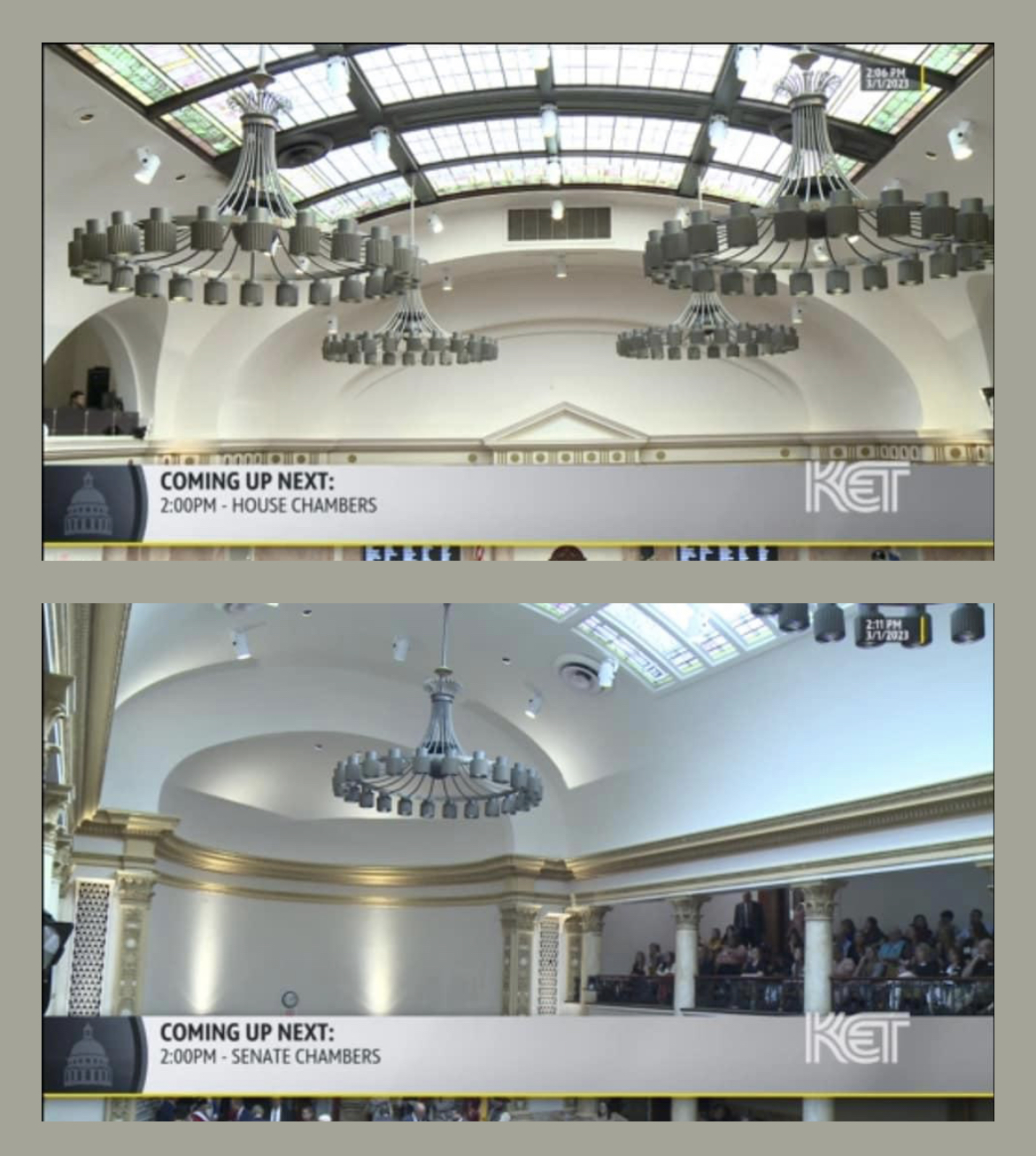
In the midst of so many legislative debacles, and nature's most recent reminder of its devastating power, it seems trivial to report on open government developments.
But report we will lest lawmakers seize the opportunity to ignore the public's right (and will) to know while our attentions are focused elsewhere.
• The House on March 1 unanimously approved HB 70. The bill was received in the Senate on March 2 and sent to the Committee on Committees for assignment.
https://apps.legislature.ky.gov/record/23rs/hb70.html
Among other things, the bill creates a new exception to the open records law for "Name, address, or likeness of the winner of a lottery prize with an overall gross value that exceeds one million dollars ($1,000,000) if the prizewinner elects confidentiality[.]"
State laws are inconsistent on the question of access to lottery winners's names and identifiers, but Kentucky is likely to soon join a list of states that limit disclosure.
https://thehill.com/homenews/nexstar_media_wire/3800913-mega-millions-c…
https://www.kentucky.com/news/state/kentucky/article263361918.html
On January 4, the Coalition blogged:
"The proposed open records exception is redundant. Nearly identical language -- making the same information confidential upon request of the prize winner -- is found in HB 70's proposed amendment of the statutes dealing with the Kentucky Lottery Corporation found in Chapter 154A.
"HB 70 achieves the goal of making the information confidential without creating a new open records exception. This is because the proposed amendment to Chapter 154A expressly restricts disclosure of the prize winner's name and address. It states:
"The Kentucky Lottery Corporation, its board of directors, or its employees shall not publish the name or likeness of any winner whose individual share of a lottery prize exceeds one million dollars ($1,000,000) who elects to have his or her identifying information withheld from public record[.]"
"It is incorporated into the open records law by KRS 61.878(1)(l), authorizing nondisclosure of 'Public records or information the disclosure of which is prohibited or restricted or otherwise made confidential by enactment of the General Assembly.'
"What harm, you ask?
"Just this. Kentucky lawmakers seem hellbent on annually expanding the number of exceptions to the open records law to create reactive and idiosyncratic exceptions. In the past, new agency specific exceptions were embedded in the agency specific statutes to which they related and not replicated in the short list of open records exceptions available to all public agencies.
"How many redundant exceptions to the open records law will we enact before we recognize how unwieldy the law has become and how wholly unnecessary they are?"
If enacted, HB 70 will not dramatically alter the open records landscape in Kentucky, but it is further evidence of lawmakers' propensity for muddling the open records law with redundant, confusing, and --occasionally -- internally irreconcilable language.
• SB 79, which was unanimously approved by the Senate on March 1, expands an existing but rarely used address confidentiality program -- the Safe at Home Program operated by the Office of the Secretary of State -- aimed at protecting domestic violence victims of domestic violence, stalking, and human trafficking victims.
https://www.whas11.com/article/news/politics/bill-address-confidentiali…;
Its sponsor, Sen. Julie Raque Adams, explained that the bill addresses concerns that “Motivated abusers and stalkers can easily access public government records, either directly or through various websites, often without charge, to find victims’ new addresses and contact information."
The measure would build on a limited, little-used program that shields victims’ home addresses from voter rolls. If the bill becomes law, the program would be expanded to mask their addresses on other publicly available government records.
SB 79 does not amend the open records law to create a new exception but explicitly recognizes that “[t]he addresses of individuals applying for entrance into the Safe at Home Program[crime victim address confidentiality program] and the addresses of those certified as program participants shall be exempt from disclosure under the Kentucky Open Records Act, KRS 61.870 to KRS 61.884.”
https://apps.legislature.ky.gov/record/23rs/sb79.html
Because it is incorporated into the open records law by KRS 61.878(1)(l), as we discussed above, it is not — nor need it be — mirrored in a new exception to the open records law.
Would that all lawmakers learn from this example.
SB 79 was received in the House of Representatives on March 2 and sent to the Committee on Committees.
• Rep. James Tipton’s HB 288 — which the Kentucky Open Government Coalition has applauded — passed unanimously out of the House on March 3.
https://apps.legislature.ky.gov/record/23rs/hb288.html
The Lexington Herald Leader reports that the bill’s sponsor credited the newspaper for a series of stories on teacher sexual misconduct, and a lack of checks and balances in the hiring process, highlighting the need for legislative correction.
https://www.kentucky.com/news/politics-government/article272649870.html…;
HB 288 makes it “more difficult for Kentucky teachers who have been accused of prior sexual misconduct to move from school district to school district” by “ban[ning] nondisclosure agreements about teacher misconduct involving minors, including sexual misconduct;” “increas[ing] disclosure requirements about past misconduct; “requir[ing] that past investigations into teacher misconduct remain in a teacher’s file;” requiring school districts to “talk to all previous schools a teacher has been employed at before hiring an individual;” and insulate school districts from legal liability “for releasing information about a teachers’ prior misconduct.”
Our only criticism of HB 288, when we first learned of it, was its under inclusivity. Public employees generally, but particularly those in whom we place our greatest trust — like teachers and law enforcement officers —should be held accountable by the same standards and not be blindly passed from one public employer to another.
https://kyopengov.org/blog/house-bill-288-mandates-teacher-accountabili…
Ten days remain in the 2023 Regular Session of the Kentucky General Assembly, excluding the veto period which commences on March 17. The session concludes on March 30.



